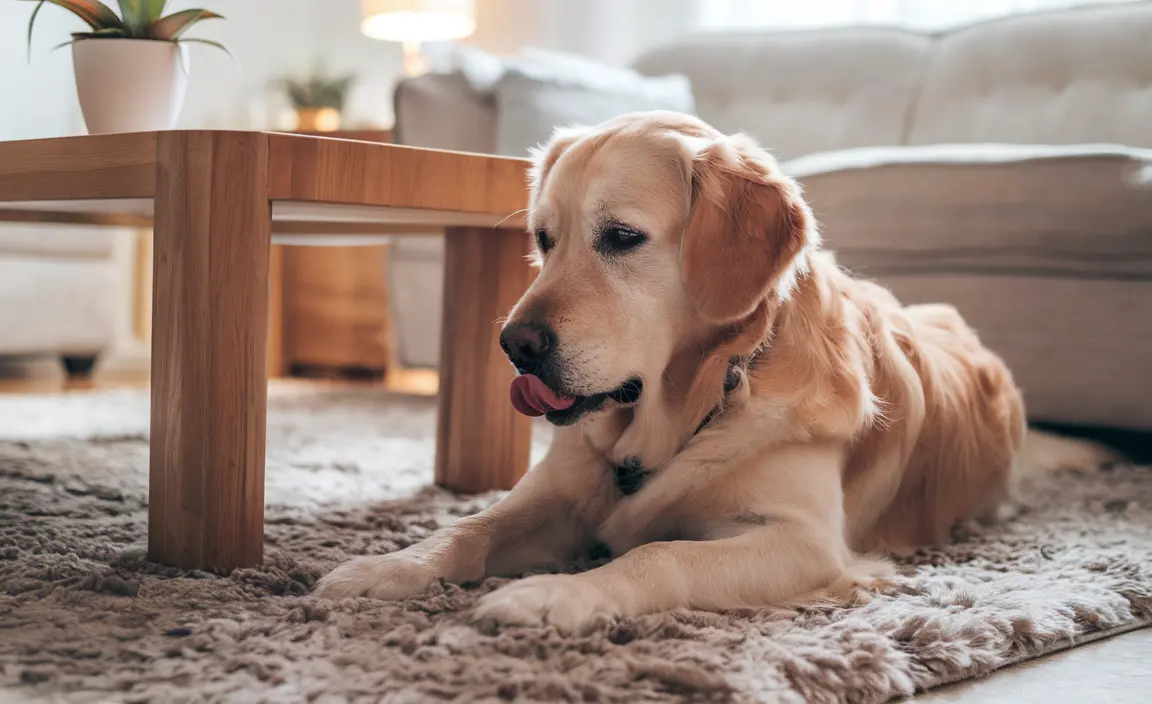Dog owners know that unusual changes in their pet's behavior can signal underlying health issues. When your furry friend suddenly develops persistent bad breath accompanied by excessive licking, it's more than just an inconvenience—it's a potential warning sign of serious medical conditions that require immediate attention.
Understanding the potential causes and recognizing early symptoms can help you protect your dog's health and prevent more complicated medical problems from developing.
Understanding Excessive Licking and Bad Breath in Dogs
Dogs communicate through behavior, and excessive licking combined with foul breath often indicates something is wrong. These symptoms can stem from various health issues ranging from minor dental problems to more serious systemic diseases.
Dental Health: The Primary Culprit
Periodontal disease is the most common reason behind bad breath in dogs. Bacteria buildup along the gum line creates plaque, leading to inflammation, infection, and that characteristic unpleasant odor. Dogs experiencing dental discomfort may lick excessively as a coping mechanism, inadvertently spreading bacteria and worsening the condition.
Skin and Infection-Related Causes
Beyond dental issues, bacterial or yeast infections can prompt excessive licking. When a dog experiences skin irritation, they'll instinctively lick the affected area, potentially transferring bacteria and creating secondary odor problems. Areas like paws, wounds, or skin folds are particularly susceptible.
Warning Signs to Monitor
Oral Health Red Flags
- Persistent, strong mouth odor
- Visible tartar or tooth discoloration
- Swollen or bleeding gums
- Reluctance to eat or drink
Behavioral Indicators
- Frequent, prolonged licking of specific body areas
- Pawing at the mouth
- Changes in eating habits
- Increased drooling
When to Seek Veterinary Care
Not all bad breath is created equal, and some signs warrant immediate professional evaluation. If your dog's breath suddenly becomes extremely foul, or if licking behavior becomes compulsive, schedule a veterinary appointment promptly.
Potential Diagnostic Steps
- Comprehensive oral examination
- Dental X-rays
- Blood tests to rule out systemic issues
- Skin infection screening
Preventative Measures
Proactive care can significantly reduce the risk of developing these concerning symptoms. Regular dental hygiene, balanced nutrition, and routine veterinary check-ups form the cornerstone of maintaining your dog's overall health.
Recommended Prevention Strategies
- Brush your dog's teeth 2-3 times weekly
- Use veterinarian-approved dental chews
- Provide a balanced, high-quality diet
- Schedule annual dental cleanings
Frequently Asked Questions
What are the most common causes of bad breath and excessive licking in dogs?
Dental disease, skin infections, anal gland issues, and systemic health problems are the primary causes of bad breath and excessive licking in dogs.
How can I tell if my dog's bad breath is due to dental issues or a skin infection?
Dental issues typically involve visible tartar, gum inflammation, and mouth-specific odors. Skin infections often present with redness, hair loss, and licking concentrated on specific body areas.
What are the best ways to prevent and treat dental disease causing bad breath in dogs?
Regular teeth brushing, professional dental cleanings, dental chews, and a balanced diet can help prevent and manage dental disease in dogs.
Why might my dog be excessively licking specific areas, such as their paws or rear?
Excessive licking can indicate skin irritation, allergies, infections, pain, or psychological stress. A veterinarian can help determine the specific cause.
What should I do if I notice my dog suddenly developing bad breath and excessive licking?
Schedule a veterinary examination to diagnose the underlying cause, which may involve oral health assessment, skin evaluation, or broader health screening.
Remember, your dog's health is a complex ecosystem. Unusual symptoms like bad breath and excessive licking are your pet's way of signaling that something needs attention. Stay observant, proactive, and always consult professionals when in doubt.






